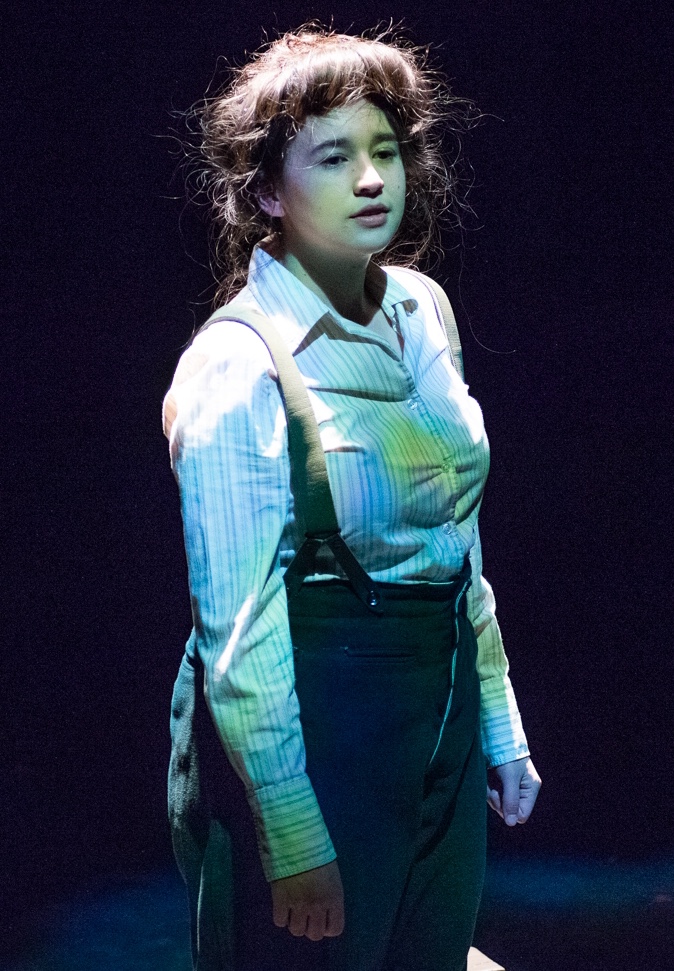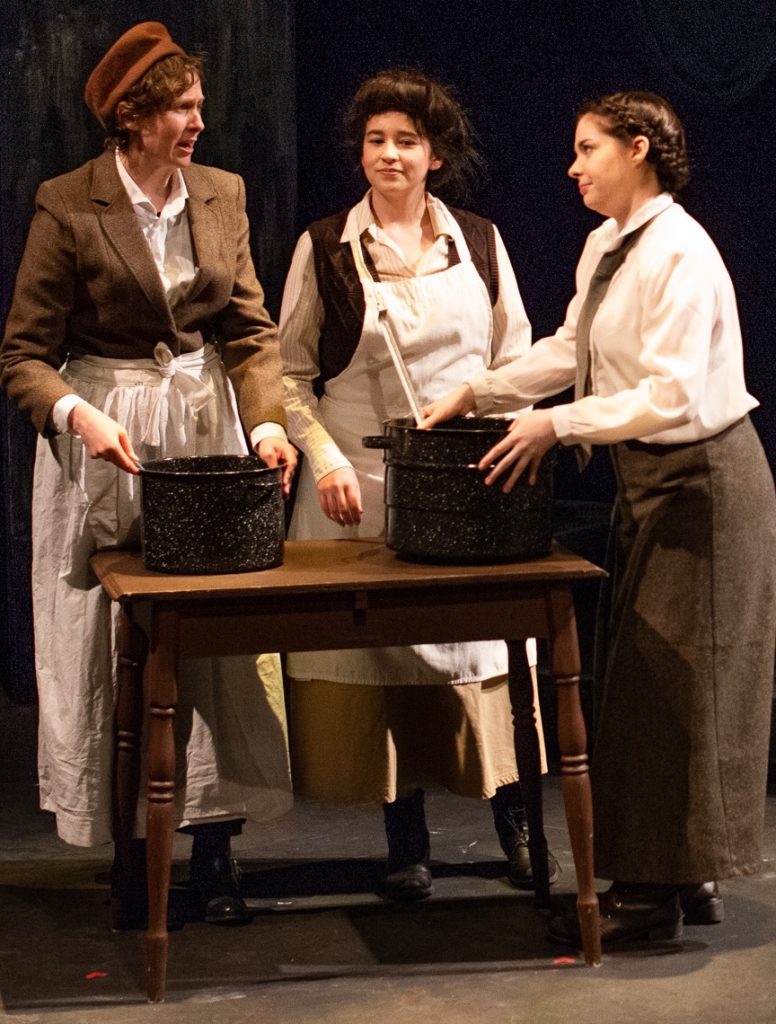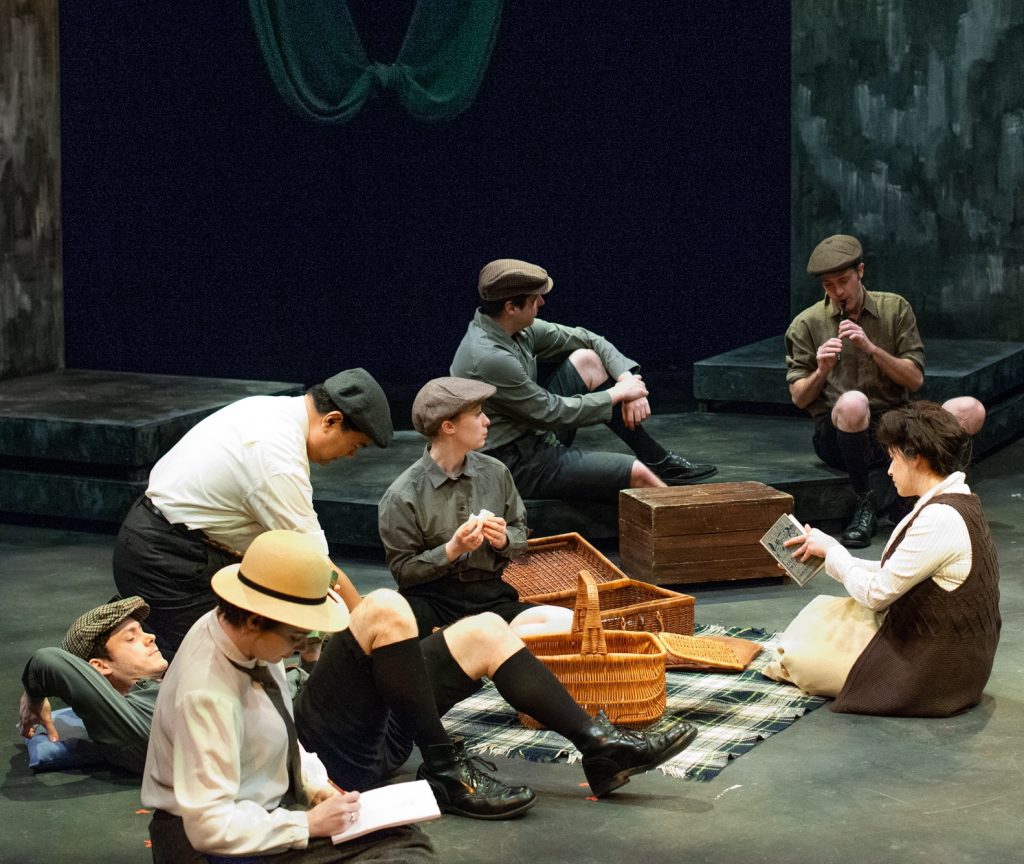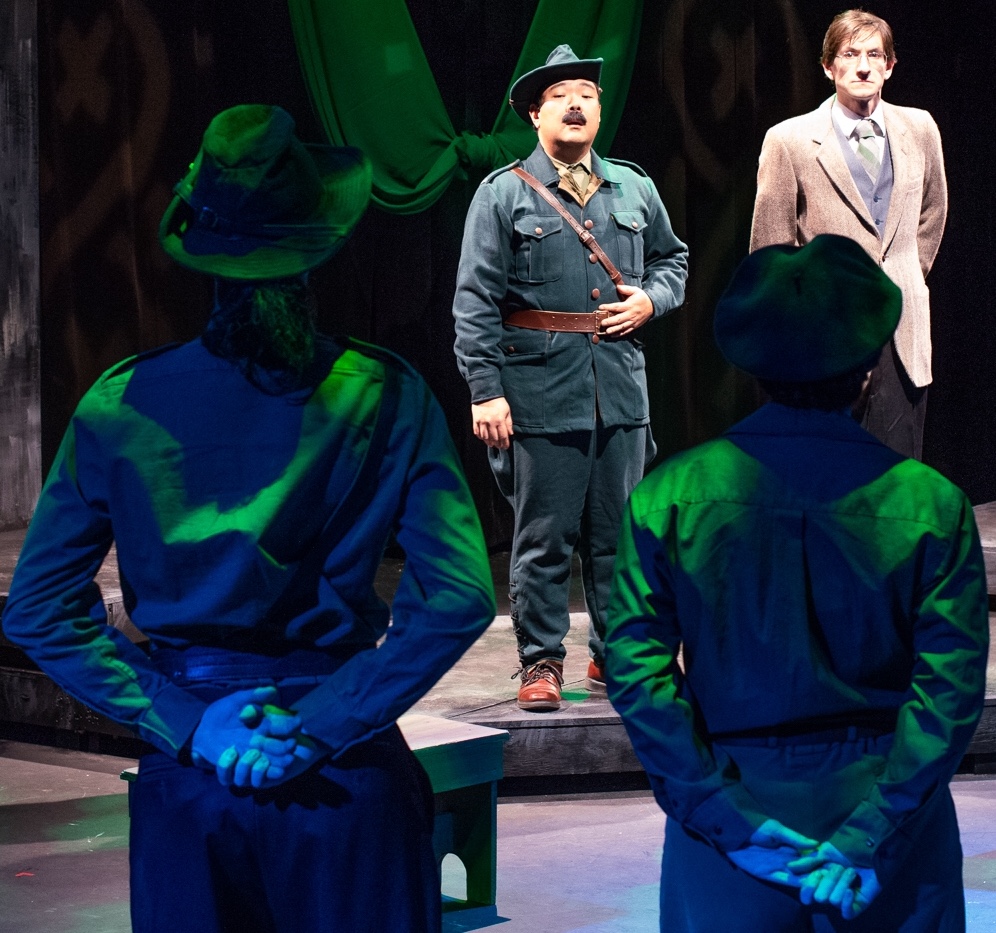
Credit: Doug Williams
At Jericho Arts Centre until March 16, 2019
Tickets from $24 at brownpapertickets.com or 604-224-8007
Posted February 26, 2019
Joan Bryans – actor, director, writer, producer and artistic director of Vital Spark Theatre – is, herself, a vital spark. Amongst other aims, she and her company are dedicated to “breathing life into old things and shining lights in dark corners”. Some of these corners are the forgotten stories of indomitable women of the past.
Changed Utterly opens the history book on Easter 1916 in Ireland when women armed themselves and joined the revolutionaries in an effort to repulse the English and secure Ireland’s autonomy. The title comes from W.B. Yeats’ famous poem Easter 1916 in which the poet reveals his mixed feelings about the rebels’ violent practices whilst acknowledging that, despite the carnage, they had opened the way for an independent Ireland: “All changed, changed utterly/A terrible beauty is born.”

Credit: Doug Williams
In the first scene of Changed Utterly, a group of men are carousing and singing about past glories; one of them, a sullen fellow, refuses to join in and demands of the rest of them, “What about the women?” In the next scene we see a group of women plotting and planning a workers’ strike: no beer, no singing, just down to work. Enter Constance Markievicz in a fur-trimmed cape and tiara, fresh from a soiree. The other women are at first dubious; what can an upper crust woman bring to struggle?
Plenty, it turns out.
Constance Markievicz (née Gore-Booth) was born in 1868 into an Anglo-Irish family. Landed gentry, her father had set a good example by feeding his County Sligo tenant farmers during the 1879-1880 famine; Constance grew up understanding the responsibility that privilege bestows. In 1900 she married Ukrainian Casimir Markievicz and gave birth to a daughter. Casimir, however returned to Ukraine in 1913 while Constance remained in Dublin where she quickly became engaged in the plight of the working class.

Credit: Doug Williams
A founding member of the Irish Citizen Army, a paramilitary group of trade unionists, Constance Markievicz donned a uniform, picked up a gun and joined the men in the struggle against the English. Following the ICA’s surrender, she was rounded up with the other ringleaders, jailed, sentenced to death but, solely because she was a woman, her sentence was commuted.
Eventually pardoned she went on to become the first woman elected to the United Kingdom House of Commons. As Bryans, who wrote and directed Changed Utterly writes, “While Constance is well known and beloved by many in Ireland, few elsewhere know anything about her.”
Who knew, for example, that these lines in Yeats’ Easter 1916 refer to Markievicz: “That woman’s days were spent/In ignorant good-will/Her nights in argument/Until her voice grew shrill/What voice more sweet than hers/When, young and beautiful/She rode to harriers?”
The play is verbatim drama – words taken directly from journals, letters and articles – which brings a ring of authenticity to the story. At times, however, verbatim keeps us at arms’ length from the character. Where we might feel Markievicz’s real emotion during her jail time, she gives us rhyming couplets – not as conducive to drawing us into her emotional state than, say, letters to her friends or family.
Naomi Wong portrays Markievicz and she comes on much more interestingly in Act 2 – possibly because there’s more ‘action’ – bullets flying, men being wounded. Wong finds depth in her character as well as a sprightly sense of humour. Markievicz, apparently, went into battle wearing the same uniform as the men beside whom she fought, but also wearing her “second best hat” – a black picture hat festooned with black feathers.
The other women are played by Carolyn Costigan, Breanne Doyle (doubling as the young boy Tommy), Alyssa Hanson-Smith, Celeste Musseau and Lindsay Nelson who does a very nice turn as both Maud Gonne and inmate Chicago May.

Credit: Doug Williams
Double casting and sometimes triple casting make it difficult to keep track of the various characters although obviously Kurtis Maguire is (mainly) James Larkin, nationalist, union leader and commander of the ICA. Gordon Law portrays James Connelly, revolutionary socialist who died by firing squad after the Easter Rebellion. Tyrus Bro plays Seamus Kavanagh who fought and was wounded alongside Markievicz while Jeremy O’Driscoll is W.B. Yeats as well as two other characters. Christopher Brown is George Russell and Matt Loop is Michael Mallin who was court martialed and executed along with more than a dozen others.
Bryans mixes it up with a cappella performances of traditional Irish songs which, although well-executed and charming, become somewhat formulaic: you can just feel a song coming on. Set design by Chris Bayne and lighting design by Mimi Abrahams give the ‘feel’ of the time and place. Voice coaches Barbara Ellison and Troy McNamara keep the actors on their toes with Irish, Scottish and British accents.
A lot of history is packed into a couple of hours but the success of Changed Utterly is the picture it provides of one woman’s mostly forgotten involvement in what eventually resulted in the creation of the Republic of Ireland. Wong’s Markievicz is the touchstone and we get a very good idea of what this remarkable woman was like: gutsy, passionate, playful and defiant. After her death sentence was commuted to life in prison she is quoted as saying, “I do wish your lot had the decency to shoot me”.
Another side of Markiewicz is revealed in the oft-quoted advice she gave to women, “Dress suitably in short skirts and strong boots, leave your jewels in the bank and buy a revolver.” She was an original: an authentic Irish nationalist, pistol-packing mama.

